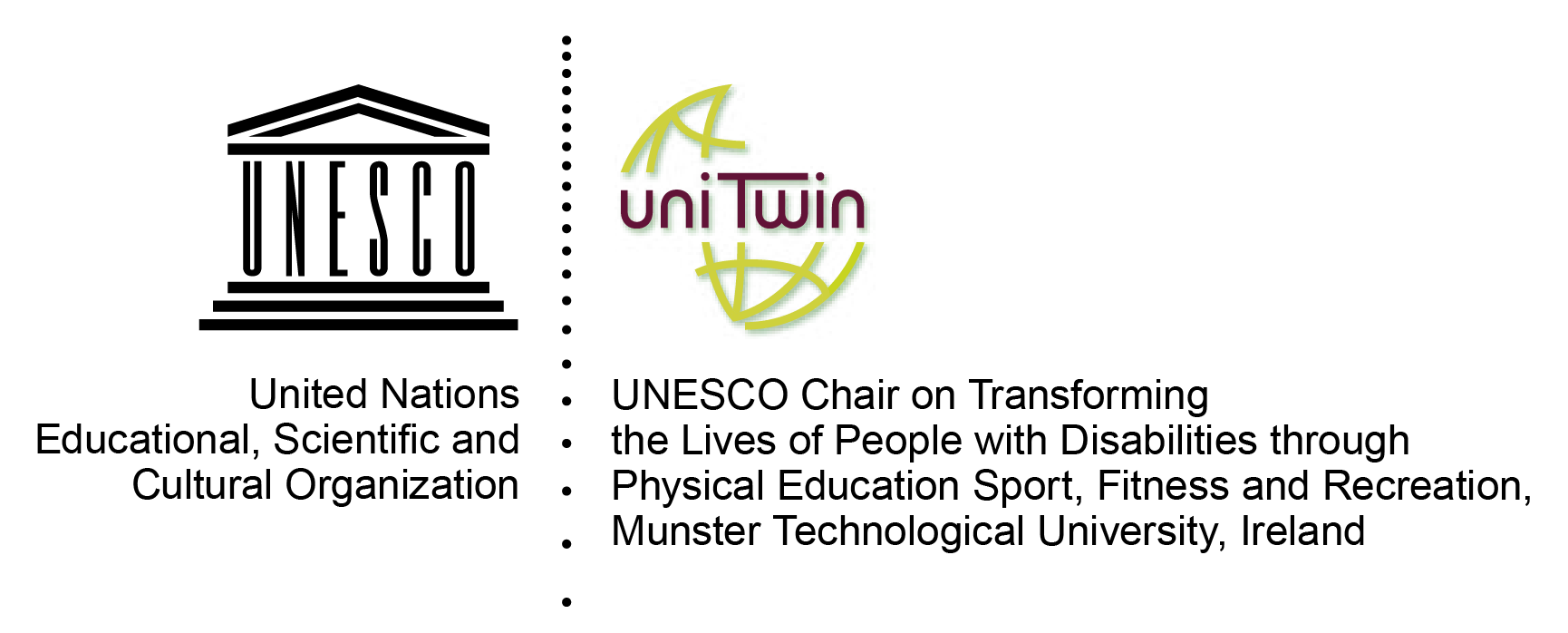An Irish third-level project designed to assist people with disabilities has gained worldwide recognition.
The programme, developed by the Health and Leisure Department of the Institute of Technology, Tralee, has been adopted by UNESCO and is now a global industry standard.
The endorsement means that academic research developed in Kerry is used around the world as a template for those involved in sports to increase and improve the social inclusion of people with disabilities.
Pat Flanagan, founder of the Adapted Physical Activity programme at IT, Tralee and a driving force behind the project, described the UNESCO (United Nations Educational, Scientific and Cultural Organisation) stamp of approval as “a massive acknowledgement” of their work.
“We are the first third-level institution in the world to receive a UNESCO chair in inclusive physical education,” said Mr Flanagan. “The Health and Leisure Dept at IT Tralee, on behalf of UNESCO, will be the leading agency in developing community-based inclusive physical activity, physical education and sports programmes for people with disabilities around the world.
“This will be achieved through working with 25 international universities and organisations using the successful programmes and modules which have been developed at the college over a number of years.
“NUI Galway is the only other college in Ireland to have received such a ‘chair’ from UNESCO. It is a massive acknowledgement of our work and a great honour for a college of our size to get such international recognition.”
Mr Flanagan explained that IT Tralee’s European Inclusive Physical Education Training programme helped bring them to the attention of Unesco officials. The EIPET programme is now used in the training of physical education teachers in Iceland, Finland, and Spain.
He said the work on greater inclusion of those with disabilities has been ongoing in Tralee for more than 10 years, with the objective of “transforming the lives of people with disabilities through physical education, sport, fitness, and recreation”.
“Huge credit must go to Catherine Carty, who spearheaded the application to UNESCO, in conjunction with Ursula Barrett and our head of department, Aileen Kennedy, for their time and effort,” said Mr Flanagan.
“The chair means more work, first and foremost, but it also means we will be able to source funding to have permanent staff to work on national and international projects and on research.
“We are already doing research projects funded by the college with COPE in Cork and with Hope Services in Alaska, in relation to physical activities and sports programmes for those with intellectual disabilities.
“It isn’t just about teaching the next crop of PE teachers; it is about providing programmes in communities and leisure centres which will make them more inclusive to those with disabilities.”
Ms Carty said the programme will help people with disabilities across the globe.
“EIPET introduced us to UNESCO, but we have gone on to do more work and the chair will represent an international research hub, engaging in transformative research, policy and legislative change with a view to enabling those with disabilities to engage with PE, sport recreation and fitness through their lifespan,” she said.
“We want to make it easier for more people to be more active more often, regardless of ability levels.
“There are lots of people out there with disabilities who would like to and who need to become physically active. IT Tralee are aiming to help people across the globe achieve this goal.”
IT Tralee runs six honours degree programmes in health and leisure, one of which is in adapted physical activity. It plans to introduce a Masters in adapted physical activity leadership in September and hopes to construct a centre for universal inclusive sport health and leisure education.
